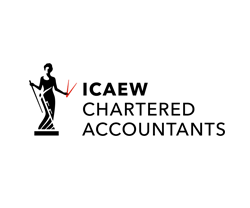August 7th, 2020
What are payments on account and how do they work?
Payments on account are part of self-assessment and are essentially advance payments towards the next tax year, which are deducted before arriving at the next year’s tax position.
Payments on account are payable twice a year – in January and July.
They are payable when the previous year’s tax liability is greater than £1,000, and less than 80% of the total tax due has been collected at source.
Tax collected at source is when tax is deducted and paid across to HMRC before you receive the income. Examples include tax deducted from salary before you receive your net pay, or tax deducted by banks before you receive net interest.
Payments on account are calculated based on the previous year’s tax liability, each payment on account being 50% of last year’s liability (although there are exceptions to this – more information can be found below).
If the payments on account paid are greater than your final liability for the next tax year then you would be due a refund. If the payments on account do not cover the final liability for the next tax year then there would be a balance to pay by 31 January following the end of the tax year.
HMRC provide an example on how payments on account work:
Your bill for the 2018 to 2019 tax year is £3,000. You made 2 payments on account last year of £900 each (£1,800 in total).
The total tax to pay by midnight on 31 January 2020 is £2,700. This includes:
- your ‘balancing payment’ of £1,200 for the 2018 to 2019 tax year (£3,000 minus £1,800)
- the first payment on account of £1,500 (half your 2018 to 2019 tax bill) towards your 2019 to 2020 tax bill
You then make a second payment on account of £1,500 on 31 July 2020.
If your tax bill for the 2019 to 2020 tax year is more than £3,000 (the total of your 2 payments on account), you’ll need to make a ‘balancing payment’ by 31 January 2021.
Capital gains tax and student loan repayments are not considered when calculating payments on account – they simply form part of the balancing payment due on 31 January following the tax year.
The same applies for Class 2 National Insurance contributions. Although these are now collected via the self-assessment system, they are not taken into consideration when calculating payments on account. Instead, they are payable as part of the balancing payment by the following 31 January.
Class 4 National Insurance contributions do, however, get included when calculating payments on account.
Payments on account are not optional, and any amounts that are paid late are subject to interest.
There may be scope to adjust the payments on account, however. Payments on account are based on HMRC’s anticipation that you will earn a similar level and mix of income the following tax year, but if you know that your level of income will be lower next year, or that you will have a change in circumstances (e.g. most of your income will be taxed at source) then you can potentially reduce your payments on account.
It is important not to reduce them too much, though, as interest would be due on overdue amounts, as well as potential penalties. It is therefore always worthwhile building in a margin of error when making applications to reduce payments on account.
The first year in which payments on account are payable is often the hardest, with effectively 150% tax payable by 31 January and another 50% payable by 31 July, but after that it tends to smooth out, as advance payments already made are deducted when calculating future tax liabilities. In all cases, it is recommended you get your tax return sorted as early as possible, so if there are any unexpected tax bills, you have time to put a plan in place.
If you would like to discuss any self-assessment queries you might have, then please do not hesitate to get in touch with us.





